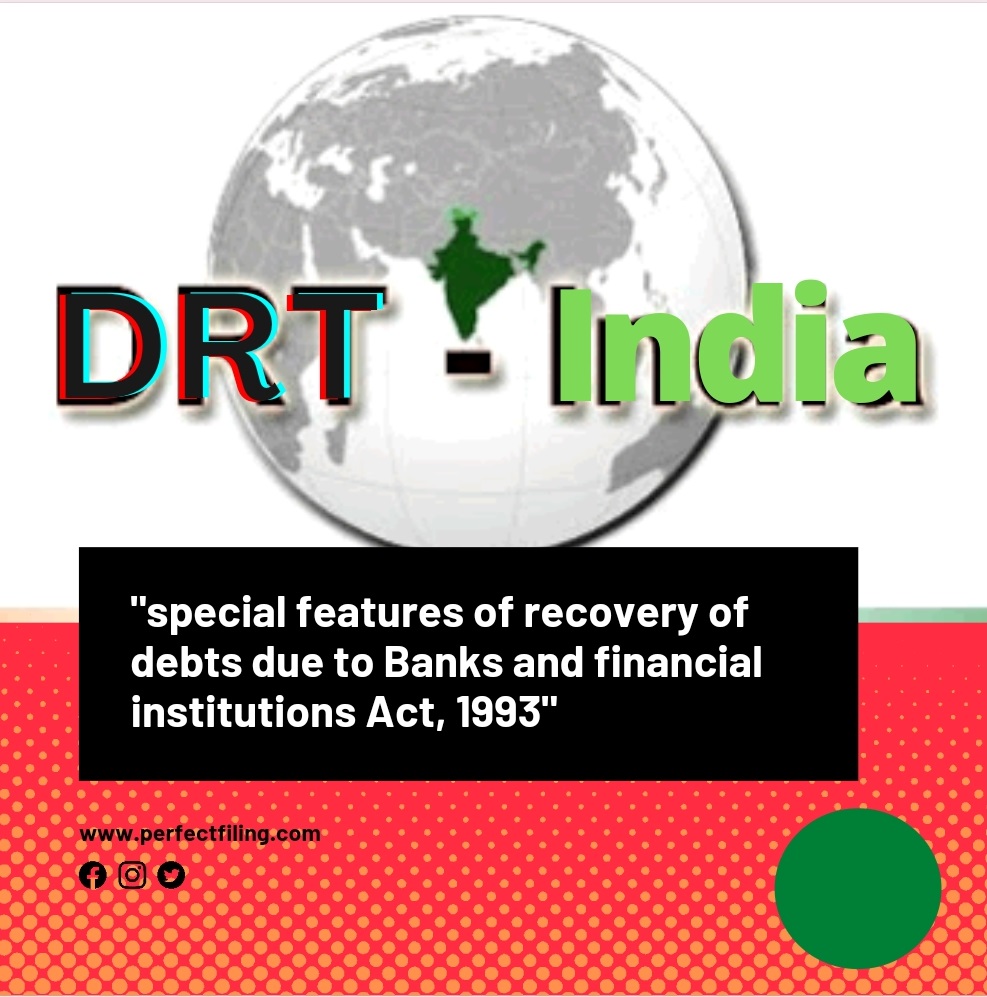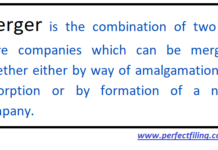Salient features of Debt due to Banks and Financial Institutions Act, 1993:-
- Expeditious adjudication and recovery of Debts: The object of the Act is expeditious adjudication and recovery of debts due to banks and financial institutions and to deal with matters connected therewith or incidental thereto.
- Creation of Special Tribunals: In regards to the above, the act provides for creation of special Tribunals, by central government, called as the Debt recovery Tribunals( DRT).
- Setting up of a Debt Recovery Tribunal: The setting up of a Debt Recovery Tribunal is dependent upon the volume of cases. higher the number of cases within a territorial area, more the DRT would be set up. On the Other hand, there are number of states that do not have Debt Recovery Tribunals.
- Setting up of appellate body to DRT: This Act also provides for setting up of appellate body to DRT, known as Debt Recovery Appellate Tribunal (DRAT).
- These DRT were unshackled from the rigors of cumbersome procedures prescribed under the CPC. Instead, the DRT were empowered to frame their own procedures of practices.
with a view to help Banks and Financial Institutions recovers their bad debts quickly and efficiently, the Government of India has constituted 33 ( thirty three) Debt Recovery Tribunals and 5 ( five) Debt Recovery Appellate Tribunals all over the country.
Note: It may be noted that after the enactment of the Securitization and Reconstruction of financial assets and Enforcement of Security Interests Act ( SARFAESI Act) borrowers could become first applicants before the Debt Recovery Tribunals. Earlier only Lenders( Banks and Financial Institutions) could be applicants.

Composition of DEBT RECOVERY TRIBUNAL
- DRT shall consist of One (1) Person only, to be called the Presiding Officer.
- Any person who has been, or is qualified to be, a District Judge may be appointed as the Presiding Officer, who shall, hold office for a term of 5 years, or until he attains the age of 65 years, whichever is earlier.
- Each Debt Recovery Tribunal has two(2) Recovery Officers.
- The work amongst the Recovery Officers is allocated by the Presiding Officer.
JurisDiction of DEBT RECOVERY TRIBUNAL
The jurisdiction of DRT can be discussed under the following two criteria:
- Pecuniary Limits: The DRT can entertain complaints only where the amount of debt due to any bank or financial institution or to a consortium of banks or financial institution is Rs. 10 Lakhs or more.
- The DRT can entertain complaints if any of the defendants ordinarily resides or carries business or personally works for gain or has a branch office; or the cause of action arises within the local limits of its jurisdiction.
Recovery of DEBT Determined by DEBT RECOVERY TRIBUNAL
Modes of Recovery of Debts:
As per the Provisions of Section 25, the Recovery officer shall, on receipt of the copy of the certificate u/s 19, proceed to recover the amount of debt specified in the certificate by one or more of the following modes, namely:
- Attachment and sale of the movable or immovable property of the defendant;
- Arrest of the defendant and his detention in prison.
- Appointing a receiver for the management of the movable or immovable properties of the defendant.
Validity of Certificate and amendment thereof:
The Defendant cannot dispute before the Recovery Officer the correctness of the amount specified in the certificate, and no objection to the certificate in any other ground, shall also be entertained by the Recovery Officer. However, the Presiding Officer shall have power to withdraw the certificate or correct any clerical or arithmetical mistake in the certificate by sending intimation to the Recovery Officer. The Presiding Officer shall intimate to the Recovery Officer any order withdrawing or cancelling a certificate or any correction made by him.
Appeal against the Order of Recovery Officer :
Any person aggrieved by an order of the Recovery Officer made under this Act; within 30 days from the date, on which a copy of the order is issued to him, prefer an appeal to the Tribunal. On Receipt of an appeal, the tribunal may, after giving an opportunity to the appellant to be heard, and after making such inquiry as it deems fit, confirm, modify or set aside the order made by the Recovery Officer in exercise of his powers u/s 25 or 28 (both inclusive).
Right to Legal Representation and Presenting Officers:
A Bank or a Financial Institution making an application to a Tribunal or an appeal to an appellate Tribunal may authorised one or more legal practitioners or any of its officers to act as Presiding Officers and every person so authorised by it may present its case before the Tribunal or the Appellate Tribunal. The defendant may either appear in person or authorise one or more legal practitioners or any of his or its officers to present his or its case before the Tribunal or the Appellate Tribunal.
LIMITATION The provisions of the Limitation Act, 1963, shall, as far as may be, apply to an application made to DRT.









